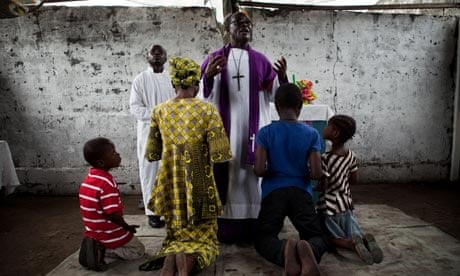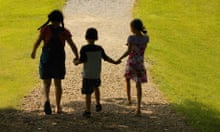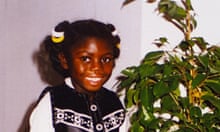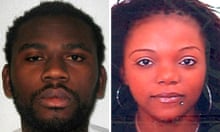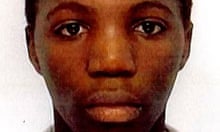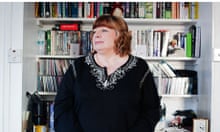Social workers are used to coping with the unexpected – it comes with the territory. But child-protection specialists are increasingly coming across a kind of case that few textbooks have prepared them for: abuse of children related to belief in witchcraft.
Child abuse linked to ideas of spirit possession and witchcraft branding is a growing phenomenon, according to evidence given to the Commons education select committee's current inquiry into child protection. It is predominantly an issue in African communities, often fuelled by extreme religious conviction, and experts believe that its growth is a reaction to personal or family misfortune brought about by the economic downturn.
Such is the level of concern about the small but rising trend that the Department for Education intends to publish an action plan on religion, witchcraft and child safeguarding, both to raise awareness of the problem and to develop expertise to counter it.
Philip Ishola of the London Safeguarding Children Board (LSCB), who has led the development of guidance for social care professionals on faith-based abuse, says: "There is a lot more work to be done on developing a co-ordinated system to respond. A consistent model across the UK does not yet exist. It is still very difficult for children's social care teams to unpick what has caused the abuse."
Belief in possession
The link between belief in spirit possession and child abuse came to public attention following the death in 2000 in Haringey, north London, of Victoria Climbié, who was from the Ivory Coast. Research found that her guardians, Marie Therese Kouao and Carl Manning, had tortured the eight-year-old partly through belief that she was possessed by an evil spirit – a belief supported by their church leaders.
In 2005, three adults in east London were convicted of child cruelty to another eight-year-old, from Angola. She had been starved, beaten, cut with a knife and had chilli peppers rubbed in her eyes in the belief that she was possessed.
Africans Unite Against Child Abuse (Afruca), a children's rights charity working with African communities in the UK, told the Commons committee that faith-based abuse is on the rise. Afruca chair Prospera Tedam said: "Over the last year, we have seen and worked with 12 cases in the London area of what we perceive as severe abuse and neglect arising from these beliefs of witchcraft."
Justin Bahunga, Afruca policy lead on faith-based abuse, says the cases coming to the charity's attention include children being semi-strangled, burned with an iron, severely beaten and starved in the belief that "it will get the devil out of them".
The belief that there are forces that can control people and events is widespread in Africa and among African communities in the UK, Bahunga explains. While the same notion exists in many religions, its role in African culture may manifest in a UK context as a response to issues such as immigration difficulties or unemployment.
"Desperate people will often seek advice from church leaders and some rogue pastors will blame children. They are seen as the easiest target," Bahunga says, giving the example of a current case Afruca is advising on involving a child branded as a witch and accused of causing their stepmother's infertility.
"The pastor will say: 'No matter what your problems, I can solve them by protecting you against the evil forces of witchcraft'. Because of their status, the word of the pastor is interpreted as God's will. They may be paid for their advice, or to carry out exorcisms. They exploit the vulnerability of the families."
Children with disabilities, orphans and those seen as having challenging behaviour are particularly vulnerable to being branded as witches, he says. Also at risk are those who may have left their parents to live with relatives or other guardians.
Afruca is campaigning for a change in law to make it illegal to brand someone as a witch. But meanwhile there is a concern that the number of incidents will rise because of the economic downturn. Bahunga says: "We fear that there is potential for real increase due to the harsh social economic situation that can trigger accusations of possession – and this is likely to be worse within newly arrived communities."
Evidence is emerging that witchcraft belief is an increasingly common tool in controlling children who have been trafficked. Research by Ecpat UK, which campaigns against the exploitation and trafficking of children, has found that traffickers may force children to go through witchcraft rituals in their countries of origin to prevent them from seeking help.
Ecpat UK director Christine Beddoe says: "No matter how far away they are from the trafficker, these children are still living in fear of what will happen to them if they speak out. As our understanding of this issue has grown, we are seeing more cases where the children's behaviour suggests they are living with this fear and control in their lives."
In July last year, Anthony Harrison of Stratford, east London, became the first person in the UK to be convicted of using witchcraft rituals to control victims of trafficking. He was jailed for 20 years for imprisoning two Nigerian girls, aged 14 and 16, whom he was attempting to take out of the UK to force into prostitution.
While Beddoe praises the work of the Metropolitan police special investigations unit in the Harrison case, she is concerned that agencies are not sharing case-based information from child protection services that could indicate abuse. This may be through ignorance of witchcraft practices, but she also believes there is a reticence among child protection workers in tackling what may be perceived as a cultural issue.
"One of the biggest challenges is where professionals have turned a blind eye to perceived cultural practices, even when they are considered harmful to children," Beddoe says. "They have got to start challenging concerns around cultural sensitivity where there is child abuse. This needs to be documented and agencies need to find a way of synthesising the data."
The last major official study of child abuse linked to accusations of witchcraft was carried out in 2006. It identified 74 cases of abuse in the UK since 2000 where a clear link could be established. Three quarters of known cases were in London and the children were mostly of African ethnicity, with some cases from south-east Asia and one from a white English background. Around half involved children born in the UK.
Safeguarding children
Supplementary guidance on safeguarding children was issued in 2007. But child protection organisations working in communities with beliefs in possession are concerned that such abuse often remains under the radar until a child dies.
Simon Bass, chief executive of the Churches' Child Protection Advisory Service (CCPAS), which trains churches in safeguarding issues, urges practitioners to use his service as a resource. "Social work practitioners need to understand the communities by working with organisations like ourselves," he says.
Ishola, who chairs the LSCB's child-trafficking group and is a service manager in children's services at Harrow council, north London, thinks social workers are becoming more aware of the problem. "Three to four years ago, these issues may not have registered as a real concern because of a western interpretation of witchcraft," he says. "But we have learned about belief in spirit possession from people coming into the UK. These cases come from a different perspective and now awareness is better."
The education department's forthcoming action plan stems from a roundtable meeting last year involving children's minister Tim Loughton and child protection organisations including Afruca and CCPAS. A department spokesman says: "It was agreed that stronger co-ordination of activity was needed, both nationally and locally, to raise awareness of this issue, develop the skills of practitioners and to support communities to resist abuse."
Bass says the action plan will bring together best practice. "I hope it will enable practitioners to know where to go for help in understanding the issues so they are more readily able to respond. I believe it will go a long way to addressing this abuse."
